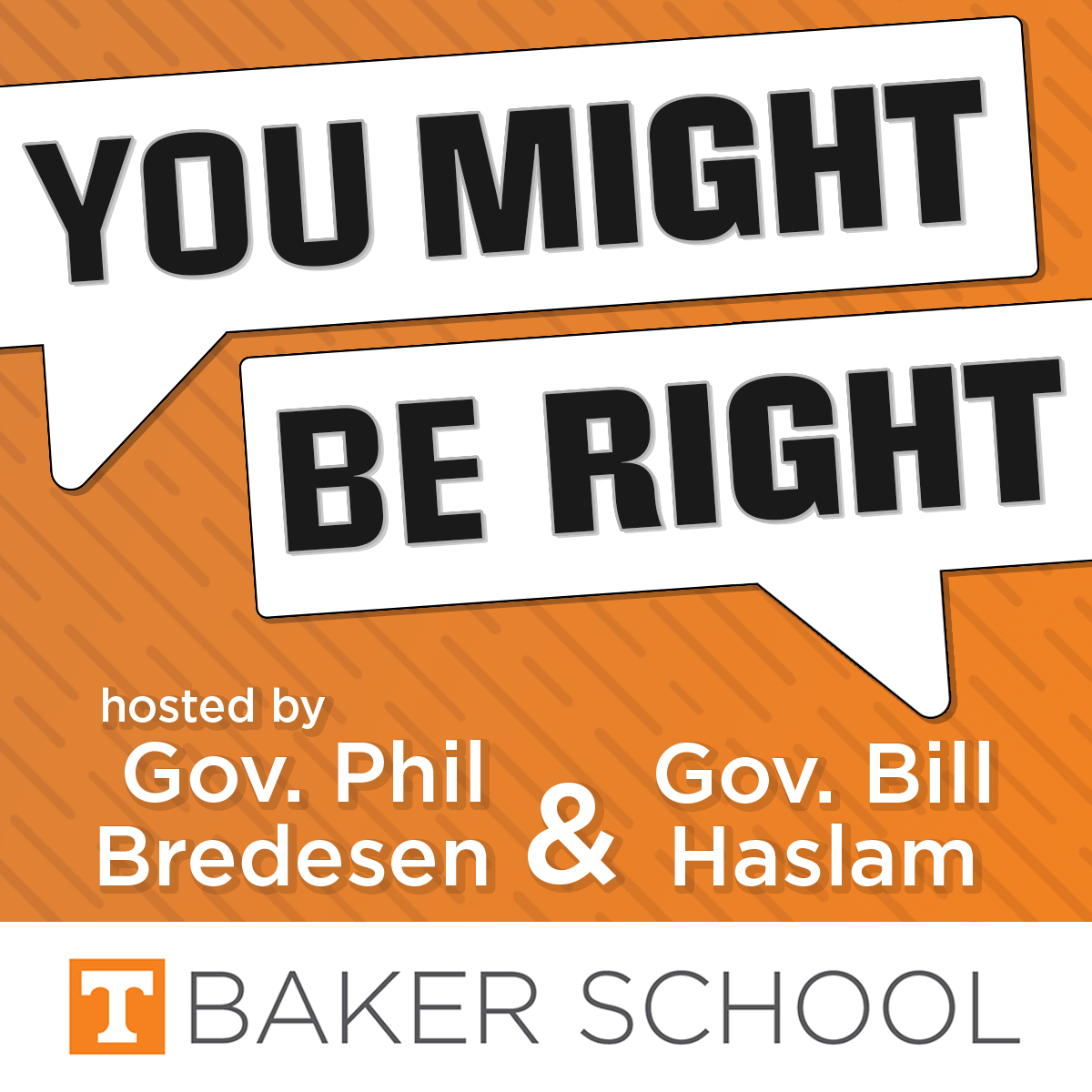Do We Need a New Strategy to Address Disparities in Public Education?
EPISODE 3: Robert Pondiscio, senior fellow at the American Enterprise Institute, and Dr. Carol Johnson-Dean, former school district superintendent in Memphis, Boston, and Minneapolis, joined Governors Bredesen and Haslam live at the National Civil Rights Museum in Memphis to assess the evidence on education reform and how we can address persistent achievement gaps.
Nearly every major education reform effort since 1965 has targeted achievement inequality in America’s schooling system. And yet, despite the efforts of the government at all levels, nonprofits, and private individuals, achievement gaps have proven to be stubbornly persistent.
Subscribe and follow You Might be Right wherever you get your audio content – including Apple Podcasts, Spotify, and Stitcher – to never miss an episode, or sign up for our email list to receive new episodes straight to your inbox each week here.
“It would be lovely if there were 4 million saints and superstars”
Following a warm welcome from Russ Wigginton, president of the National Civil Rights Museum, the governors and their guests discussed the role that teachers and teaching play in education reform conversations.
As would be the case in any profession, the idea that every one of the 4 million teachers in the U.S. is going to be a superstar is just not realistic, Pondiscio said. “If you’ve got 4 million of anybody doing anything, you’re going to have a normal range of human distribution…It would be lovely if there were 4 million saints and superstars, but you have to make the job doable by the people we have. Because that’s all we have. That’s all we’re ever going to have,” he told the crowd.
One thing that might help? “We should really ask less of teachers, not less in terms of lowering their standards, but just make the job doable by mere mortals,” he said, citing the burden of the many hours that teachers spend each week on Google, Pinterest, and other sites looking for lesson plans as one example. “Other people can write the lesson,” he added. “I want teachers to focus on studying student work, on building relationships with kids, building relationships with families, giving feedback.”
“We can’t slow the race down”
Johnson-Dean focused many of her remarks on resource distribution and equity. She pointed out that while a strong curriculum is important, it is not enough. A high-quality curriculum needs to be widely accessible starting very early on because half of the achievement gap in third grade is present by kindergarten, she noted. Acknowledging the challenge of supporting kids who enter kindergarten with very different levels of preparation, she compared it to a marathon.
“A lot of people were training…for years. And then we got a group of kids that showed up at 10, and they didn’t know that they had to do all this training to run the marathon. And now they’re in it. And we can’t slow the race down for the kids who’ve been training and are in it,” she said. “And so we have to push, but then we have to figure out what are the resource investments that are going to be necessary in terms of curriculum for the kids who showed up late, missed the bus, Mom didn’t tell them, nobody told them that these are the prerequisites you must have in order to achieve in this arena.”
“We haven’t decided as a society who are we trying to create”
From routinizing the curriculum to things like third-grade reading guarantees, re-training teachers and creating smaller schools, the group discussed a number of potential policy options that might help address education disparities.
“We have to kind of decide what the ultimate outcome is that we want,” said Johnson-Dean, describing her experience visiting a series of different middle schools in Boston. She went with a group of school leaders to visit a series of middle schools – a charter school, a traditional school, and a Catholic school – and recounted how the environment at the Catholic school was very different than what she expected and left a lasting impression. “[Students] asked so many thinking questions that I began to think that they were being socialized not to just learn, but to think critically about the assignment and the outcome,” she said.
“I left there thinking, maybe we are short-changing our children because…we haven’t decided as a society who are we trying to create. And we want thinkers. We want people who are decision-makers. We want leaders for the future. And we can’t just pretend that kids are going to come up one day and learn how to design things if they don’t have rich experiences.”
Subscribe and follow You Might be Right wherever you get your audio content – including Apple Podcasts and Spotify – to never miss an episode, or sign up for our email list to receive new episodes straight to your inbox each week here.

Join the conversation on Twitter by following @UTBakerSchool, @PhilBredesen, and @BillHaslam.